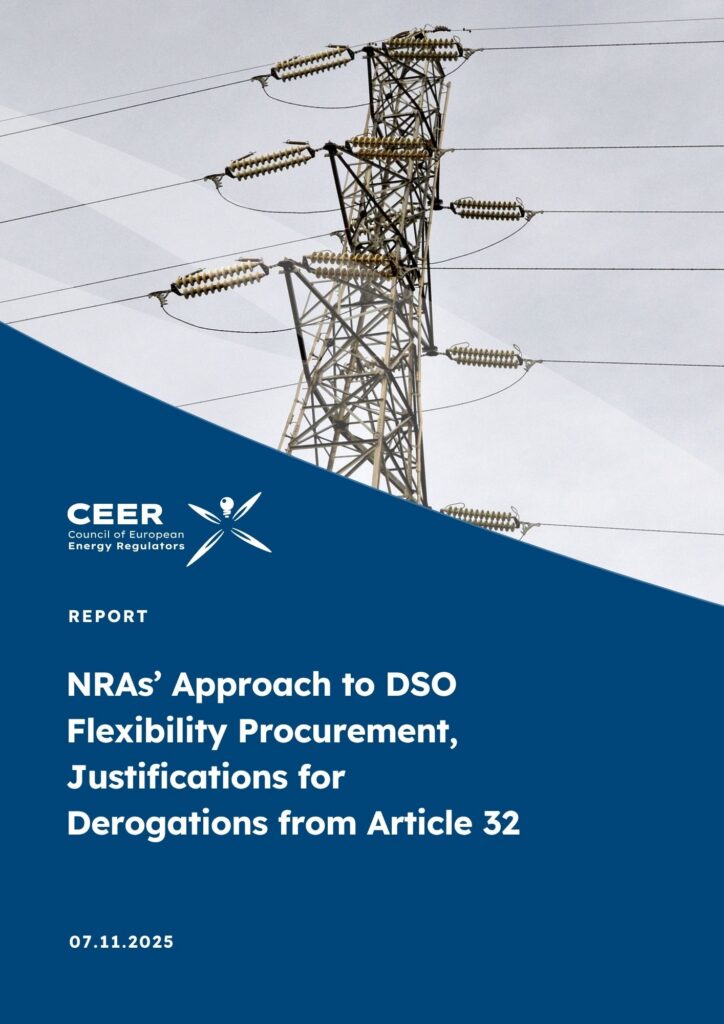NRAs’ Approach to DSO Flexibility Procurement, Justifications for Derogations from Article 32
Introduction
CEER has published its latest report on NRAs’ Approach to DSO Flexibility Procurement, Justifications for Derogations from Article 32 of the Electricity Directive (EU 2019/944). The report provides an overview of how National Regulatory Authorities (NRAs) oversee the use of flexibility services by Distribution System Operators (DSOs) and the circumstances under which derogations from market-based procurement are granted. It examines how national frameworks, regulatory approaches, and technical conditions shape flexibility procurement across CEER Member Countries.
Context and Purpose
The Electricity Directive (EU 2019/944) encourages DSOs to procure flexibility services through market-based mechanisms to improve network efficiency, reduce costs, and support the integration of distributed energy resources. However, under Article 32, NRAs may grant derogations if market-based procurement is found to be economically inefficient, creates market distortions, or increases congestion.
With the upcoming Network Code on Demand Response and the Electricity Market Design reforms, understanding how countries implement flexibility procurement and apply Article 32 derogations has become increasingly important.
This paper aims to:
- Provide NRAs with an overview of national practices in DSO flexibility procurement and derogation processes under Article 32.
- Examine how network flexibility is valued within regulatory frameworks, particularly in non-market-based contexts.
- Offer recommendations to support the effective development of local flexibility markets.
Key Findings
The paper reveals significant variation in how flexibility procurement and derogations are handled across Europe.
- Market-Based Procurement Barriers: Even when market-based flexibility procurement is the most efficient solution, its development is often constrained by information gaps, technological limitations, and regulatory uncertainty.
- Regulatory Impact: The design of regulatory frameworks influences whether DSOs can pursue technology-neutral solutions and leverage flexibility as an alternative to grid expansion.
- Interlinked Processes: DSO planning and procurement processes, such as network development plans, flexibility needs assessments, and derogations under Article 13 of the Regulation or Article 32 of the Directive, are closely interconnected. While EU legislation prioritises market-based approaches, it allows derogations when justified. Market-based procurement should thus be viewed not as an end in itself but as a starting point to identify the most efficient network solutions.
- Derogation Practices: Fewer than half of surveyed countries have a formal derogation process under Article 32, and there is no unified set of indicators to evaluate economic inefficiency, market distortion, or congestion risks. No country has yet denied a derogation request. Three Member States have granted derogations to all DSOs, while others remain in progress. About half of the NRAs issue derogations for 1–2 years, and in roughly 50% of cases, DSOs are required to outline actions toward achieving market-based procurement.
- Valuation of Flexibility: There is no standardised method for valuing flexibility. Current practices include comparing flexibility costs with grid reinforcement costs or assessing them based on regulatory cost benchmarks.
